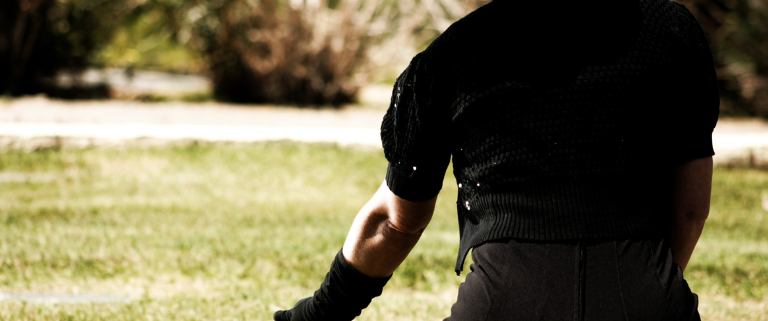How to Cope with Valentine’s When Your Partner Just Died?
Just when you’ve gone through the Christmas and New Year’s Eve holidays nursing a grieving heart, Valentine’s Day will stir up sad feelings and remind you of what you’ve lost all over again. Whether your partner just passed recently or it may have been years, it’s natural to miss the person, especially on something as poignant as Valentine’s Day, a holiday for love and lovers.
Heart’s Day may be even harder than other holidays, anniversaries, or birthdays because of all the commercial reminders that this Hallmark occasion brings. You’ve got chocolates, jewelry, flowers, and more. With a heavy theme of romance in the air, it may feel as if Cupid is rubbing in that you’re missing out on something.
But fret not because you can prepare for a memorable Valentine’s Day even if you’ve just held the funeral services of your spouse. You can move through this day with grace even if you’re grieving. Check out the following tips to help you below:
Plan How You Want to Spend This Day
Your anxiety and sadness over Heart’s Day can be alleviated by making plans on how you want to spend the event ahead of time. Preparing what to do even when you’re grieving is a healthy move to find healing. And even if you make last-minute plans, having one for this day can give your February 14 a meaningful direction. You can help find peace on this day and solidify your plans by asking yourself these questions:
- What do you want to remember on Heart’s Day?
- Will you implement new V-Day traditions?
- What old rituals will you keep to honor your departed loved one?
- Are there any people you want to connect with or avoid?
Pondering these questions will help you brainstorm ideas to make Valentine’s Day meaningful even without a partner. You can make a list of things you want to do after some much-needed introspection.
Celebrate the Memory of Your Beloved
Just because your partner is physically gone doesn’t mean love will also be gone. Use this special occasion to celebrate your love and relish in the memory of your beloved. You can do activities that remind you of your bond such as:
- Visiting the deceased’s gravesite
- Writing a love letter in your journal
- Hiking on a favorite trail
- Dining in a favorite restaurant
- Volunteering in your loved one’s charity
Reach Out to Family and Close Friends
A bit of alone time is good after the memorial services are done. However, completely withdrawing from people who care for you is alarming. Isolating yourself after the death of a partner could lead to depression. To prevent your emotions from escalating, you can use Heart’s Day as a time to reach back. You can do live video calls or meet up for dinner. People who love you won’t mind listening to you and sharing your grief.
Have a Nice Meal Delivered and Relish It
Everyone knows that restaurants get packed on Valentine’s Day with couples. On top of that, restaurants make it a point to decorate with flowers and hearts. All of these may be painful triggers of what you’ve lost. If you feel that all of these symbols will cause pain, do yourself a favor and have a nice meal delivered and enjoy it from the comforts of home.
Enjoy Self-Care Rituals at Home
When you’re grieving the recent loss of a partner, taking care of yourself is a priority. Remember, self-care is the highest form of self-love, and your deceased partner would want to shower you with love and not want it any other way. Now that they’re no longer physically present to pamper you, it is more important than ever to do self-care rituals at home. You can try the following activities:
- Drink chamomile tea and curl up with a good book
- Do yoga and meditation sessions online
- Soak in a bubble bath with a glass of wine and aromatherapy candles
- Put on a luxurious face mask
- Do mani and pedi sessions at home
It’s vital to shower yourself with kindness on February 14. You will likely be bombarded by visuals and sounds of all things romantic on the days leading up to Heart’s Day. Offset any pain you may feel with self-compassion and self-love. Acknowledge that it is hard but you’re doing your best. All of these are useful tools that help you manage difficult emotions.
Connect with a Support Group
After losing a loved one, bereavement support is important because the pain feels more raw. It would be helpful to connect with a widow or widower support group. You can search online to see which support groups are active in your area. Most groups host a Valentine’s Day meal at a nearby restaurant or host online gatherings to keep you busy on this day.
Do What Your Heart Tells You
If you don’t feel like celebrating Valentine’s Day at all, that’s also acceptable. However, it is not healthy to pretend that it doesn’t exist. Even if you attempt to treat February 14 as an ordinary day, it is inevitable to have a grief reaction because messages will be everywhere, from social media to television. It would be helpful to know what to do when strong emotions arise so you can cope with them.
It is understandable why you feel pain and suffering on this special occasion. Even if you attempt to “be your own Valentine” it would be hard to fill the void that is left when a loved one dies. No matter what you choose to do on this day, remember to be kind and compassionate with yourself because your grieving heart deserves it.








